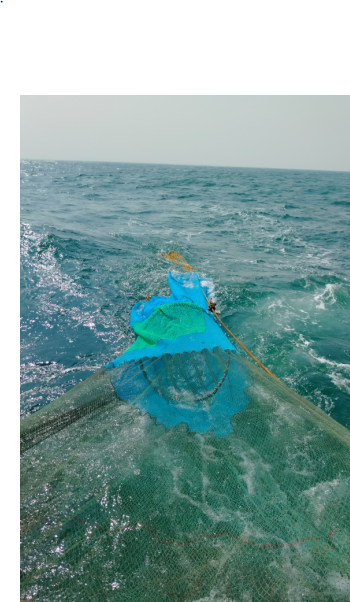Paradip: The first demonstration of Turtle Excluder Device (TED), which allows fishing while ensuring protection to the protected Olive Ridley turtles, near the Barunei estuary in Paradip, was successful, a report said.
The estuary is close to Gahirmatha Marine Sanctuary, the nursery of the rare sea turtles which is known for mass congregation on the beaches of Odisha. The demonstration was carried out during a collaborative survey to monitor the activity of Olive Ridley turtles in the sea conducted by the Marine Products Export Development Authority (MPEDA) of Government of India, State Fisheries Department, and representatives from the fishermen’s Association.
The survey team, comprising technical experts, departmental officials, and representatives of the fishermen’s association, used two boats equipped with TEDs for fishing.
Participants in the study included Muralidhar Jena, Joint Director of the Fisheries Department; Subhrakant Mohapatra, MPEDA state coordinator; Bijay Kumar Kar, Marine Fisheries Officer; and Purinder Biswal, a member of the Odisha Marine Fish Producers’ Association (OMFPA).
Fishing activities using TEDs were carried out in two boats throughout the day near Barunei sanctuary.
OMFPA member Purinder Biswal confirmed that no Olive Ridley turtles were captured during the exercise.
Speaking on the survey, MPEDA coordinator Subhrakant Mohapatra said, “We carried out fishing for several hours using both regular nets and TED-equipped nets on two boats. Initially, the TED nets yielded 64 kg fish in one boat, and 93 kg in the other.
Similarly, fishing with conventional nets during the same duration resulted in 13 kg fish in one boat and 67 kg in the other.” The catch from the TED-equipped nets included species like ribbonfish, pomfrets, shrimps, and other varieties of fish. However, no turtles were caught, reaffirming the effectiveness of the TEDs in conserving marine biodiversity, Mohapatra said.
Also Read: Puri has lost its pristine charm: Satpathy
TED is a specially designed net used in fishing to protect marine turtles. Prepared in the United States (US), the device allows turtles to escape if they get caught, unlike conventional square or mesh nets where they often die after getting ensnared in the nets. TED nets have been introduced as a solution to meet international conservation standards.
Since 2018, the US has banned the import of Indian marine fish due to concerns over the harm caused to Olive Ridley turtles in Indian waters. Following this ban, European nations have also stopped importing Indian marine fish. The continued use of square nets has been cited as a reason for these restrictions.
In response, the Indian government has launched efforts through organisations like NETFISH and the MPEDA to promote the use of TEDs. The US has indicated that the ban will be lifted if TED nets are adopted, as they allow turtles to escape without compromising the catch.
PNN

